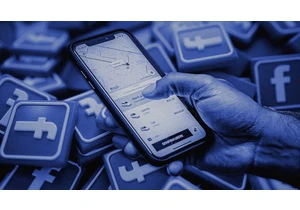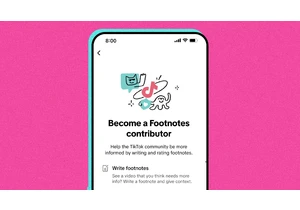With the new omicron variant of the coronavirus on the rise, ordinary office gatherings may not be coming back any time soon. That’s why a New York startup called Luna Park—named for the famed Coney Island amusement park—is creating a massive library of human-hosted online games that companies can play together to allow employees to bond outside of regularly scheduled meetings and awkward Zoom and Slack small talk. “What we’re trying to do is bring games to the workplace in an effort to help foster these connections between colleagues,” says Luna Park CEO and cofounder Ben Anderson. “What better way to connect with someone than to collaborate on some sort of shared challenge together?” [Image: courtesy of Luna Park]Luna Park, which launched earlier this year, offers pop culture trivia challenges to more visual games designed to appeal to international audiences (who sometimes assume the company is named after one of the other Luna Park amusement parks around the world), all hosted by professional entertainers from within the company’s TV-style studios. When a company is considering booking a session, they get on a call with Luna Park staff, who typically select about 10 games from the Luna Park library that suit the customer’s needs and employee interests. That could mean a travel-themed quiz for a team with lots of employees who like to travel, or a cocktail-hour-themed game for workers who are fond of company happy hours. “The live host can actually comment . . . and engage the group in some sort of discussion or banter about [their interests],” says cofounder and COO Arlen Marmel. It’s part of a pandemic-long push by a variety of startups, gaming providers, and in-person entertainment companies that moved online to let organizations that have switched to remote work find ways for employees to bond without resorting to the dreaded Zoom happy hour. With many companies repeatedly delaying the return to normal office life as COVID-19 continues to spread, and an increasing number of businesses becoming generally more tolerant of remote work, it’s a need companies will likely have for the foreseeable future. [Image: courtesy of Luna Park]Luna Park players are typically broken down into groups of about four or five employees each, who can video chat with each other and hear the game host, but opposing teams can’t hear each other. Having the mechanics of that handled is one of the advantages of using Luna Park as opposed to trying to set up a video chat gaming session in-house, says Katherine “KK” Mayo, director of operations at blockchain company Ava Labs, which has Luna Park gaming sessions about once per month. “They allow you not to deal with the logistical issues you normally do if you’re doing it ad hoc yourself with Zoom,” says Mayo, who previously ran trivia sessions herself at various companies. Since hosts are in studios and in front of green screens, Luna Park can also customize backdrops relatively easily, like for a Halloween event, where the host’s podium was made to look like a pumpkin, or winter holiday parties. “We put the hosts right in front of these snowy mountains with the northern lights and an awesome-looking snowman onstage and snow and ice around,” Anderson says. “We have 3D stage designers who create these custom 3D stages that are thematic for whatever event we’re putting on.” [Image: courtesy of Luna Park]The gaming sessions, which start at $500 per game, do also work for companies that have some or all of their employees back in the office, though Luna Park encourages players to use their own computers. Anderson says its game library is big enough to keep delivering new challenges to repeat customers, with the set of games continuing to grow and evolve based on player needs. Future innovations might include options for competitions across companies, according to Anderson. “We make about five new games every week,” he says. “We have professional writers, we have professional editors, we have a team of engineers who are constantly changing the game dynamics and tweaking things and coming up with new stuff.”
Login to add comment
Other posts in this group

A new watchdog report uncovers Facebook groups quietly fueling a black market fo

A software application called Interview Coder promises to help software developers succeed at technical job interviews—by surreptitiously feeding them

Amid tariff whiplash and the rejuggling of global trade, GE Vernova’s CEO Scott Strazik is finding a way to stay “relentlessly optimistic.” Strazik returns to the Rapid Response podcast to share h

Tesla‘s electric-vehicle registrations in California dropped 15.1% during the first quarter, industry data showed, signaling an

TikTok is launching its own version of community notes on the platform, called “Footnotes.”
The crowd-sourced approach to moderation, where users add additional context to p
MrBeast has again defended his philanthropy‑as‑content, clapping back at critics who say he is “only in it for the views.”
On April 13, in a post on X, Jimmy Donaldson—better k

Meta CEO Mark Zuckerberg once considered separating Instagram from its parent company due to worries about antitrust litigation, a
